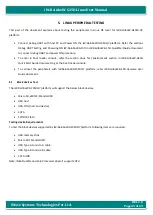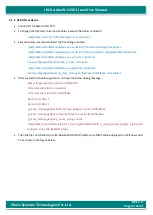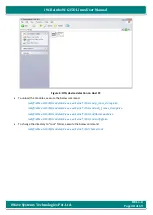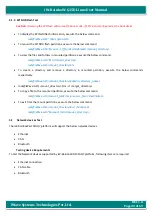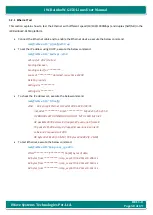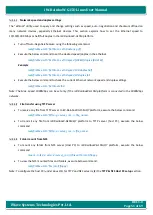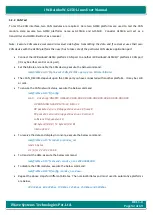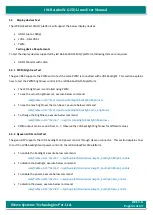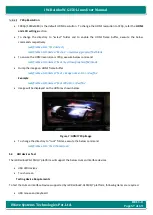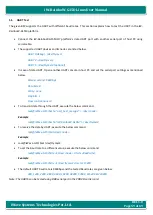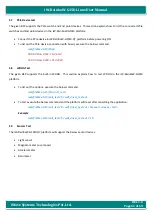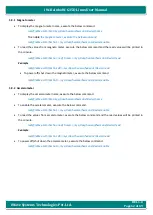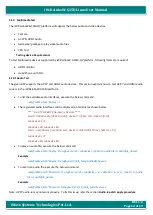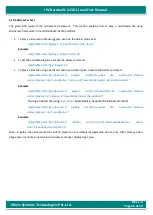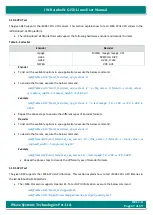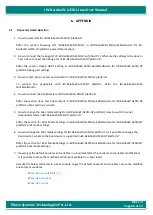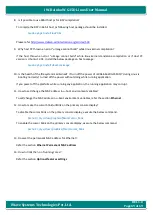
REL 1.0
Page 59 of 69
iWave Systems Technologies Pvt. Ltd.
iW-RainboW-G15D Linux User Manual
5.5
UART Test
The given BSP supports the UART with different baud rates. This section explains how to test the UART in the iW-
RainboW-G15M platform.
Connect the iW-RainboW-G15M-Q7 platform’s data UART port with another serial port of host PC using
serial cable.
The supported UART devices and its nodes are listed below,
UART 1(debug) - /dev/ttymxc1
UART 3 - /dev/ttymxc2
UART 5 - /dev/ttymxc4 (optional)
In case of data UART, Open another UART console in host PC and set the serial port settings as mentioned
below.
Bits per second: 9600 bps
Data bits: 8
Parity: none
Stop bits: 1
Flow control: nonesd
To transmit data through the UART, execute the below command.
root@iWave-G15/$echo “uart_test_mesage” > /dev/<node>
Example
root@iWave-G15/$echo “iW-RainboW-G15M” > /dev/ttymxc2
To receive the data by UART, execute the below command.
root@iWave-G15/$cat /dev/<node>
Example
root@iWave-G15/$cat /dev/ttymxc2
To set the Baud rate to a different value, execute the below command
root@iWave-G15/$stty –F /dev/<node> crtscts <Baud rate>
Example
root@iWave-G15/$stty –F /dev/ttymxc2 crtscts 115200
The default UART baud rate is 9600bps and the tested Baud rates are given below:
300, 1200, 2400, 4800, 9600, 19200, 38400, 57600, 115200 & 230400
Note: The UART5 can be tested using DB9 serial port in the PRDVD carrier card.

